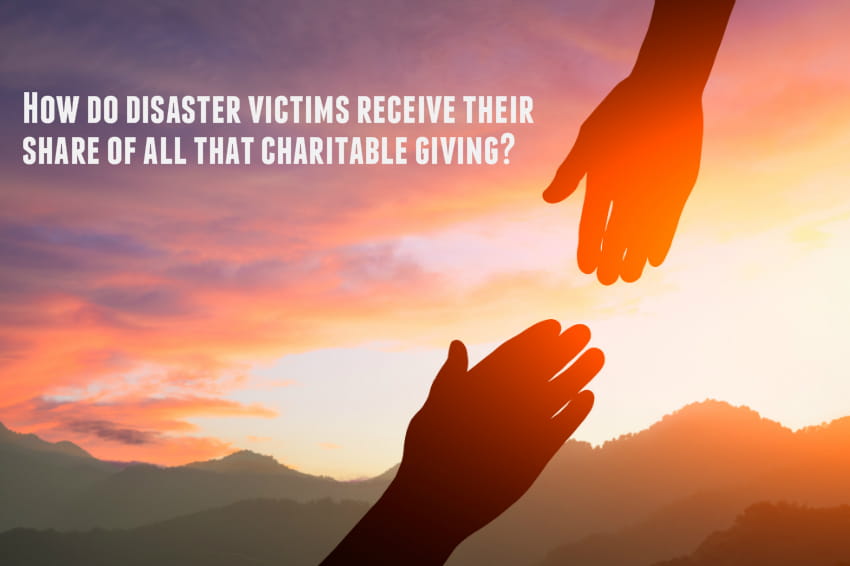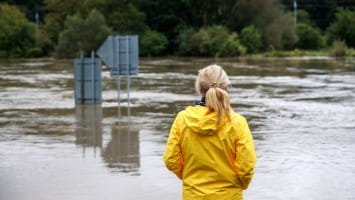How do disaster victims receive their share of all that charitable giving?

Even if you haven’t been impacted directly by the recent series of hurricanes, you’re likely aware of how extensive the damage has been. Moreover, you’ve probably heard about the many highly successful fundraising efforts that have surrounded these disasters. As news spread of the growing devastation in Texas, fundraising began in earnest, with NFL player J.J. Watt notably raising upwards of $37 million towards Hurricane Harvey relief.
But if you’ve actually been displaced by one of these disasters, you may be wondering, “Will I ever see any of that money?” Unfortunately, the answer is a little complicated.
Fundraising versus distribution
Fundraising massive amounts of money and actual distributing that money are two totally different ventures, requiring different skills and tools. Because of this, the majority of the most successful fundraisers are not actually in a position to directly distribute funds or aid. Instead, the funds are trickled down into smaller organizations – usually local nonprofits.
These nonprofits must often apply for a portion of the available funds. While this is necessary to make sure that the funds are disbursed to organizations that will provide the most aid to the local community, it takes time. In some cases, this aid may take months, or even a full year, to be distributed.
Organizational aid versus individual need
Another important factor to keep in mind is that much of this charitable giving is directed towards nonprofits, with the expressed purpose of helping them deliver on their mission. That mission usually comes in the form of services, supplies, or aid provided to disaster victims, not in the form of cash handouts (though it could).
This means that money is being directed towards services like shelters and food banks. Receiving your “share”, such as it were, requires that you connect with the appropriate services.
Asking for help
If you’ve been impacted by a disaster like Hurricane Harvey, and need assistance, you’ll need to do a little work. You can begin by calling 211 and letting the United Way know what it is you need. It may take some time for national donations to make it to the local level, but once they do the United Way will be able to help connect you to the local charities that can provide what you need.
In the meantime, be sure to use all non-charitable means at your disposal. If your damages are covered by an insurance policy, begin filing your claim now. Work with your insurer to understand what your insurance does and does not cover, and provide them with all necessary information.
If your insurance isn’t sufficient to cover your losses and get you back on track, visit DisasterAssistance.gov to learn what federal programs, including grants and low cost, low interest loans, are available to help you recover.
Despite the sometimes staggering amount of money being raised in the wake of a major disaster, if you’re a victim those funds won’t find you easily. So do what you can to avoid relying on charitable giving and start working now to find groups in your area who can provide assistance, should you need it.
















